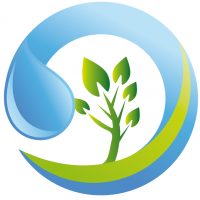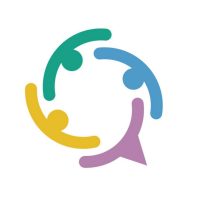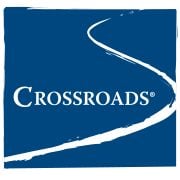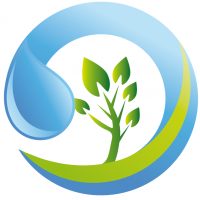Maine Medical Center - Outpatient
Drug Rehab Center in Portland, Maine
Maine Medical Center (MMC) - Outpatient is a top-ranked healthcare provider offering comprehensive outpatient services, including substance abuse treatment and addiction recovery support, with accreditation from The Joint Commission and the Commission on Accreditation of Rehabilitation Facilities (CARF) and recognition from the American Society of Addiction Medicine (ASAM).
About Maine Medical Center - Outpatient in Maine
Maine Medical Center (MMC) - Outpatient, located in Portland, Maine, is an internationally recognized healthcare provider offering state of the art diagnostic, medical, and surgical services, as well as comprehensive support, on an outpatient basis. MMC - Outpatient is among the top 3 largest outpatient clinics in the United States and provides a full range of services, including both primary and tertiary care. Amongst their vast array of services, they offer substance abuse treatment and addiction recovery support. Specialized services include individualized care plans tailored to each individual's unique needs, psychosocial and medical support for those struggling with substance use and mental health issues, and access to medication-assisted treatment and therapeutic interventions.
MMC - Outpatient has developed a comprehensive continuum of care for individuals affected by substance use disorders, by providing medication-assisted treatment, individual therapy, group therapy, and specialized programs for pregnant/postpartum women, and those with co-occurring mental health conditions. They are also committed to helping individuals maintain long-term recovery through supportive services and relapse prevention strategies, including help with housing, employment, and life skills training.
MMC - Outpatient has achieved distinction in medical excellence in a variety of areas, earning accreditation from The Joint Commission and the Commission on Accreditation of Rehabilitation Facilities (CARF). MMC - Outpatient has also received recognition from the American Society of Addiction Medicine (ASAM) – making them the only ASAM Level III certified clinic in Maine – as well as the designation of “Top Performer on Quality” by The Joint Commission in 2017. MMC - Outpatient offers a wide variety of programs and services for addiction, including unique offerings like their “MMC Connections” program. This program helps provide additional training to addiction professionals, enhancing the existing network of treatment options available to the local community.
Genders
Ages
Modality
Additional
Conditions and Issues Treated
Dual Diagnosis treatment centers like Maine Medical Center - Outpatient provide this treatment tailored to the patient’s specific needs, and they also have a specialized focus on addiction treatment. Drug and alcohol addiction often coexists with another mental illness, such as depression or schizophrenia. In other words, drug addiction is only a symptom of a deeper problem.
When addiction enters into the picture, it can often lead to dangerous consequences in the addict’s life. For example, when addiction is paired with major depression, it can lead to suicidal thoughts or actions. When someone is addicted to drugs or alcohol, they often experience a failure to control their impulses and difficulty decision-making.
Dual diagnosis for drug addicts can be very effective when treating drug addiction in Portland, ME.
Levels of Care Offered
This center offers a variety of custom treatment tailored to individual recovery. Currently available are Dual-Diagnosis, Inpatient, Outpatient, with additional therapies available as listed below.
The inpatient rehab at Maine Medical Center - Outpatient promises an intense and effective treatment. Inpatient rehabs are particularly recommended for those with a severe addiction to drugs. Detoxing at a rehab center ensures that the patient receives 24-hour medical supervision to ensure the best possible chance of recovery. Medical staff is readily available to intervene in case of withdrawal symptoms or other complications. This is not the case with outpatient treatment, where patients may be discharged after the detoxification process is complete.
Inpatient facilities provide residential and holistic treatment, with access to experienced medical professionals and rehab specialists. This ensures the best possible recovery and is recommended for patients with severe addiction seeking drug treatment.
Outpatient treatment programs are less intensive than an inpatient program. Participants live at home while working or going to school. Benefits include being able to continue relationships with family, friends, and work/studies. Treatment includes educating patient on addiction to drugs, medication, and counseling. Benefits include being able to continue relationships with family, friends, and work/studies. Treatment includes educating patient on addiction to drugs, medication, and counseling. Counseling sessions are for either individual or group.
Therapies & Programs
Individualized Treatment is essential because it gives addicts the ability to participate in a program that meets their unique needs. An addict should work with professionals who understand what they’re going through, especially if the addict is actively using.
Trying to find a treatment program that meets your needs can be challenging. It’s even more complicated if you don’t know what kind of treatment you need. Being able to have professionals who are experienced with treating your situation is key to getting sober. Finding the right treatment program for an addict is difficult, but it’s even harder without communicating with those who have experience treating your specific situation.
Couples therapy is beneficial for couples in which at least one partner has a substance use disorder. This type of therapy can help partners improve communication skills, which is an important factor in a healthy relationship. It can also help partners better understand one another so they have a greater understanding of how the other partner may be feeling.
Benefits of couples therapy include:
- Improvement in communication skills
- Increased understanding of the dynamics within a relationship
- Increased sense of support and trust in the relationship
- Better teamwork between partners/increased willingness to listen and work together
- Enhanced tolerance of each other’s shortcomings
- Improved ability to have open, honest communication with each other
Family dysfunction can often be the underlying cause of substance abuse. To get sober, you need to find a different way to cope with the pain in your life. Family therapy can help you and your family deal with old issues that may trigger substance abuse. It will help everyone understand why each member of the family feels and acts the way they do. It can give everyone new tools to manage their emotions so that they don’t want to drink or do drugs.
A person looking for drug recovery should know that group therapy is an essential tool. Group therapy provides accountability and friendship to people with addiction. It is recommended as a lifetime treatment habit. Group therapy occurs in a group setting as opposed to a one-on-one setting. It benefits patients by providing a feeling of support and letting them know they are not alone. Patients at Maine Medical Center - Outpatient also learn to build trust and understanding and gain perspective through discussions.
Cognitive behavioral therapy (CBT) is a type of psychotherapeutic treatment that is focused on changing negative ways of thinking that contribute to addictive behavior.
Cognitive behavioral therapy is beneficial for:
- People who are seeking to overcome addictive behavior
- Those who struggle with addictive behavior and mental illness
- People who have a genetic history of addiction in their family
- Those who don’t want to depend on medications
- Those who need a more practical treatment approach
Thinking about nutrition is an odd thing when you’re strung out. You are probably so low physically that all you want to do is sleep, eat comfort food and get high again. It’s hard to imagine having enough energy to care about what kind of food you are eating but think about it. Your body has gone through some severe physical stress, so it is vital to give it the building blocks it needs to recover. It’s equally important to remember that malnutrition can affect your mood and energy level, which affects your desire to get sober.
If you’re eating right, you’ll have more energy for productive activities, such as going to meetings or being with other sober people in Portland, Maine. You’ll have more strength to fight cravings, and you won’t be so low that they are overwhelming. You will think clearly enough to make sober decisions. Finally, good nutrition helps keep your body strong against the familiar ravages of drug use–tuberculosis, hepatitis, abscesses, infections, etc.—as well as the physical symptoms of withdrawal.Nicotine replacement therapy can help addicts reduce or eliminate their cravings for nicotine. By replacing the harmful substances in tobacco with less potent chemicals, most smokers can gradually wean themselves off cigarettes without experiencing intense cravings.
During these sessions, a therapist will work with the addict to gradually reduce their dependence on nicotine by controlling how much they smoke and providing appropriate breaks between cigarettes. Using this type of therapy in combination with other strategies can help smokers learn how to quit smoking for good and avoid relapse.
Patient Experience
Experiential Therapy at Maine Medical Center - Outpatient
Experiential therapy is a type of therapy that has been found to be effective in the treatment of substance abuse. It is a “hands-on” approach, which can involve anything from acting to rock climbing. The individual must trust the therapist for this therapy to work. This therapy helps individuals revisit and heal from past traumas and has been used in various behavioral and eating disorders.
Payment Options Accepted
For specific insurance or payment methods please contact us.
Is your insurance accepted?
Ask an expert, call (888) 674-0062
Additional Details
Specifics, location, and helpful extra information.
Portland, Maine 4102 Phone Number(207) 662-0111 Meta DetailsUpdated November 25, 2023
Staff Verified
Maine Medical Center - Outpatient Patient Reviews
There are no reviews yet. Be the first one to write one.
Portland, Maine Addiction Information
Prescription opioid abuse is the most common form of substance abuse in Maine. More than 10% of these residents have also admitted to using prescription drugs for non-medical purposes. Between 2013 and 2014, 4 out of every 5 deaths in Maine were caused by illicit drugs. One in five high school students in Maine uses marijuana every single month.
More than 5,000 individuals struggling with drug addiction in Portland, Maine. In 2015, 11.5% of people over the age of 12 had used an illicit drug. The most commonly abused drugs in Portland are marijuana, cocaine, and heroin. Drug-related crime costs the Portland community $100 million each year. There are several treatment options available in Portland. The most common type of treatment is inpatient rehab.
Treatment in Nearby Cities
- Blue Hill, ME (99.1 mi.)
- Rockland, ME (66.0 mi.)
- Lubec, ME (183.2 mi.)
- Freeport, ME (16.5 mi.)
- Auburn, ME (30.8 mi.)
Centers near Maine Medical Center - Outpatient
The facility name, logo and brand are the property and registered trademarks of Maine Medical Center - Outpatient, and are being used for identification and informational purposes only. Use of these names, logos and brands shall not imply endorsement. RehabNow.org is not affiliated with or sponsored by Maine Medical Center - Outpatient.







